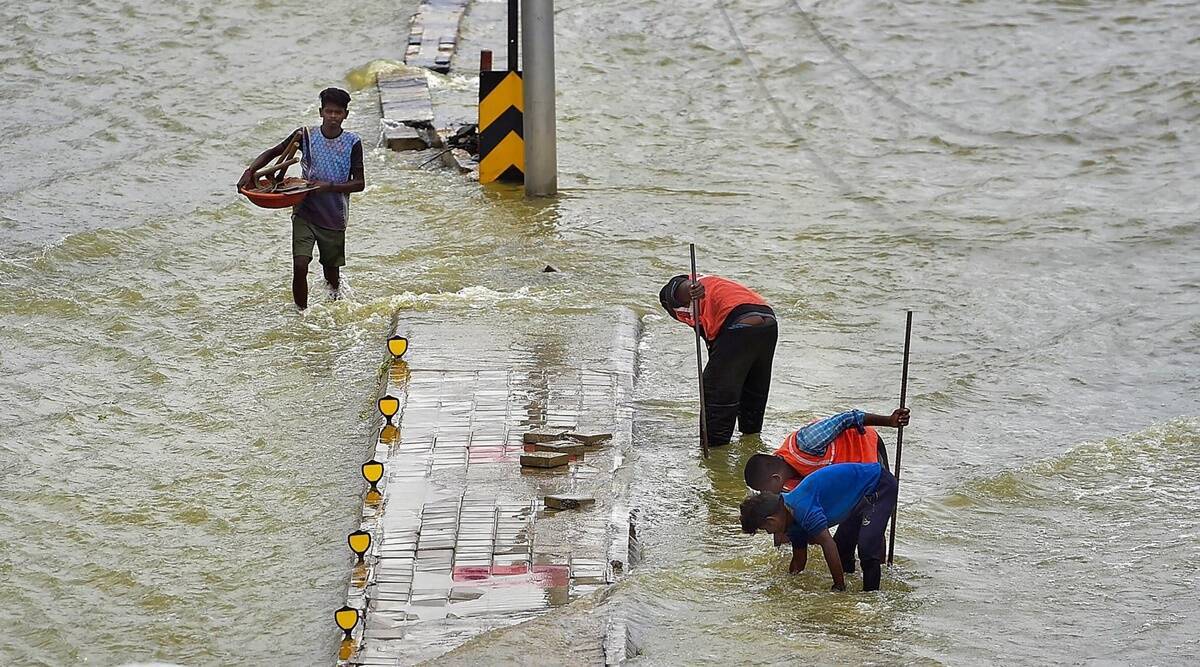
A new study by Bengaluru-based think tank Center for Study of Science, Technology and Policy (CSTEP) Friday released the roots for embedding artificial intelligence (AI) in India’s climate change mitigation and adaptation initiatives.
The study examined AI’s potential for strengthening climate action in India with a focus on transport and water management. The study stated that the use of AI in the transport sector has the potential to significantly limit GHG (greenhouse gas) emissions, and can, therefore, be instrumental in mitigating the impacts of climate change.
“One such high-impact application is in planning the electric vehicle (EV) charging infrastructure — a crucial factor for large-scale EV uptake and another is in flood prediction and warning, which can enable efficient, targeted emergency responses. The study acknowledges AI as a powerful tool to boost and speed up our response to climate change. Recognising that the manner in which AI is deployed in the near future will determine India’s progress towards achieving its climate action goals, the report furnishes a comprehensive roadmap to guide the way forward,” the CSTEP said in its report.
It identified the use of water, including drinking, agriculture and industrial and applications of AI in water management and conservation.Subscriber Only Stories
“Diminishing glaciers pose a long-time critical risk to water availability and security in India. AI’s can be deployed for the frequent and more expansive monitoring of glacial retreat and advance, better simulations/estimates of impacts of glacial changes in river water systems,” the report said.
“In the Indian context, some glacier mapping datasets (like those on Hindu Kush Himalayas) are readily available. It is crucial to deploy appropriate AI, ML (machine learning) or DL (deep learning) technologies to monitor or map the effects of climate change on the glacial structure and assess the impact,” the report added.
Advocating the use of AI, the think tank in its report said: “The occurrence of devastating floods and droughts has been increasing in India over the years. These climate disasters have caused extensive loss of lives and livelihoods, and large-scale destruction of property and infrastructure. This calls for utilising AI for making prompt and accurate predictions of floods and droughts as well as for putting appropriate risk assessment measures in place. Forecasting the occurrence of disasters well in advance is crucial for taking the necessary adaptive steps. Disaster management is a key potential area for deploying AI to enable informed decision making and effective planning.”Advertisement
Explaining the use of AI and ML in the transport sector the report further said, “India can also explore the possibility of using AI tools or write suitable AI/ML algorithms for energy optimisation. EV penetration in India, especially of four-wheelers, is not very impressive. The penetration of heavyweight EV vehicles (like trucks, buses etc.) is almost non-existent. Though the rate of penetration seems to be increasing in the case of two and three wheelers, there is a long way to go. The nature of datasets, i.e. the demand, charging pattern, load on the grid etc. can also be obtained only when there is a substantial number of EVs plying on the Indian roads.”
“Thus, this AI use case has the potential to generate a positive end-user impact and mitigate climate change issues over the mid to long term. One of the factors for the low demand of EVs can also be the high purchase price of an EV for the consumer. Evaluating their costs versus overall returns in the Indian context will be useful in enabling informed decision making by the end user. In India, traffic data (such as the number of road users and pedestrians, traffic density), and information on intersections and types of vehicles at an intersection is not readily available. AI can be deployed to gather these big and raw datasets from traffic video feeds which are accessible. The use case will result in high positive returns in terms of reducing the overall traffic activity, and hence traffic congestion on roads. Moreover, it would certainly lead to efficient fuel consumption by vehicles and reduction in overall emissions. With the availability of datasets, intelligent traffic signal systems can prove to be a solution to traffic congestion in the short term, with immediate and direct impact on the end users,” the report added.
Anjali Taneja, Karen F Alphonso, Srishti and Pranti Dutta are the researchers, who contributed to the study.
Source: https://indianexpress.com/article/cities/bangalore/bengaluru-artificial-intelligence-think-tank-traffic-water-management-8182384/